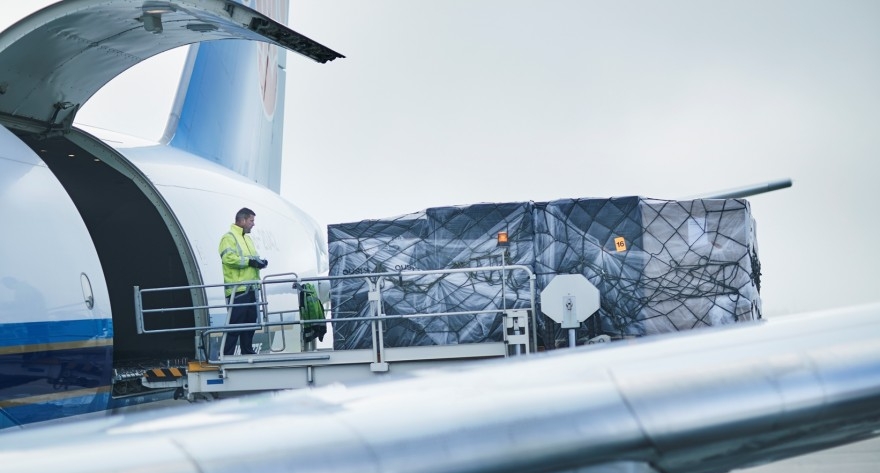Schiphol Cargo records 5.4 percent increase in tonnage touching 1.75 million in 2017
Schiphol Cargo reported an increase of 5.4 percent on yearly tonnage in 2017 with strong demand in the Far East for European goods boosting total figures to 1,752,498 tonnes.

January 23, 2018: Schiphol Cargo reported an increase of 5.4 percent on yearly tonnage in 2017 with strong demand in the Far East for European goods boosting total figures to 1,752,498 tonnes.
Europe’s third-largest air cargo hub experienced an uptick in cargo throughput of 7.4 percent year-on-year between January and October 2017, with total figures for January to December 2017 reaching 1.75 million tonnes.
Imports to Schiphol from the Far East see an increase of 3.1 percent to 299,386 tonnes, with exports to the region growing by 8.8 percent year-on-year touching 316,097 tonnes.
However, import volumes from Africa decreased by 6.6 percent to 109,751 tonnes due to temporary aeronautical restrictions that have been in place since June 2017.
Imposed by the Kenyan Authorities, the restrictions mean that fewer direct freighter flights are coming from Nairobi, Kenya.
Exports to Africa were down 5.4 percent on 2016 to 51,743 tonnes.
Asia remains Schiphol’s largest market, with Shanghai, China, the busiest destination.
European exports grew 19.1 percent to 123,950 tonnes in 2017, with imports up 18.2 percent to 124,992 tonnes.
“We have continued to build on initiatives in 2016 and 2017 with the aim of enhancing the experience of our pharmaceutical, e-commerce, and perishables customers, and our continued commitment to quality is having positive results,” said Jonas van Stekelenburg, head of cargo, Amsterdam Airport Schiphol.
Stekelenburg continued, “The upswing in e-commerce shipments, both inbound and outbound, was a large contributor to the cargo volumes for this market. A number of flights transit Europe en-route to Asia, and we can attribute a proportion of the growth in our European figures to the developing Asian market.”
Flights to Asia transiting European destinations including Baku, Azerbaijan, and Moscow, Russia, continue to contribute to an increase in outbound figures to the Far East.
Latin America inbound cargo was up by 21.5 percent in 2017 to 123,524 tonnes due to a number of additional full freighter flights on the route. Outbound cargo grew by 1.8 percent to 76,498 tonnes.
Imports from the Middle East increased by 3.4 percent to 97,789 tonnes in 2017, with export tonnage increasing by 2.1 percent year-on-year to 122,617 tonnes.
Imports from North America were down by 5.6 percent to 141,714 tonnes year-on-year reflecting changes in regional strategy by some airline partners, whilst North America export volumes were up by 4.4 percent to 164,509 tonnes.
A total of 496,748 air traffic movements flew in 2017, an increase of 3.7 percent on 2016.
A maximum number of 500,000 ATM until 2020 has been agreed between Schiphol Group, the local community, airlines, and the Dutch Government.
“This is no reason to hold back on our quality initiatives; we need to stay alert, prepare for what is coming, and seek the necessary innovations,” said van Stekelenburg.
This year (2018) began on a positive note at Schiphol, with an increase in load factors as well as a slight growth in ATMs as a consequence of unused slots.
“It is very positive that in this current 2017 / 2018 winter season, all requested, full freighter slots were granted, and many freighters were able to continue their business at Schiphol with ad-hoc slots,” van Stekelenburg continued.
“It is Schiphol’s objective to aim for sustainable growth at the airport after 2020 and airfreight is an important part of that. On the belly side, we expect AMS to grow in 2018 both in terms of volume and capacity. The outlook for 2018 – as, globally, we see even more air traffic growth - is a challenging one. The slot scarcity has been a challenge for us as a cargo community, and in some cases, cargo stakeholders were under-represented in the various sections of the airport community.
“In 2018 we will act on this, together with all freighter airlines, handlers, and other logistics service providers. Trust, increased cooperation, and improved agreements between all stakeholders are essential in this respect," concluded van Stekelenburg.
“Close collaboration with our Cargo Community remains vital and is a strong focus for 2018. Together we will continue to pursue our ambitions of better digital information exchange, and further quality improvements in the supply chain, particularly for pharma, e-commerce, and perishables.”
Schiphol Cargo’s Smart Cargo Mainport programme initiatives such as the Holland Flower Alliance, Pharma Gateway Amsterdam, and European Green Fast Lanes are working towards this goal by focusing on improved information sharing, and optimal landside logistics.
Innovations such as the compliance checker, developed in partnership with Cargonaut, are examples of how collaboration within the Schiphol Cargo Community is shaping its journey towards becoming Europe’s smartest cargo hub.


